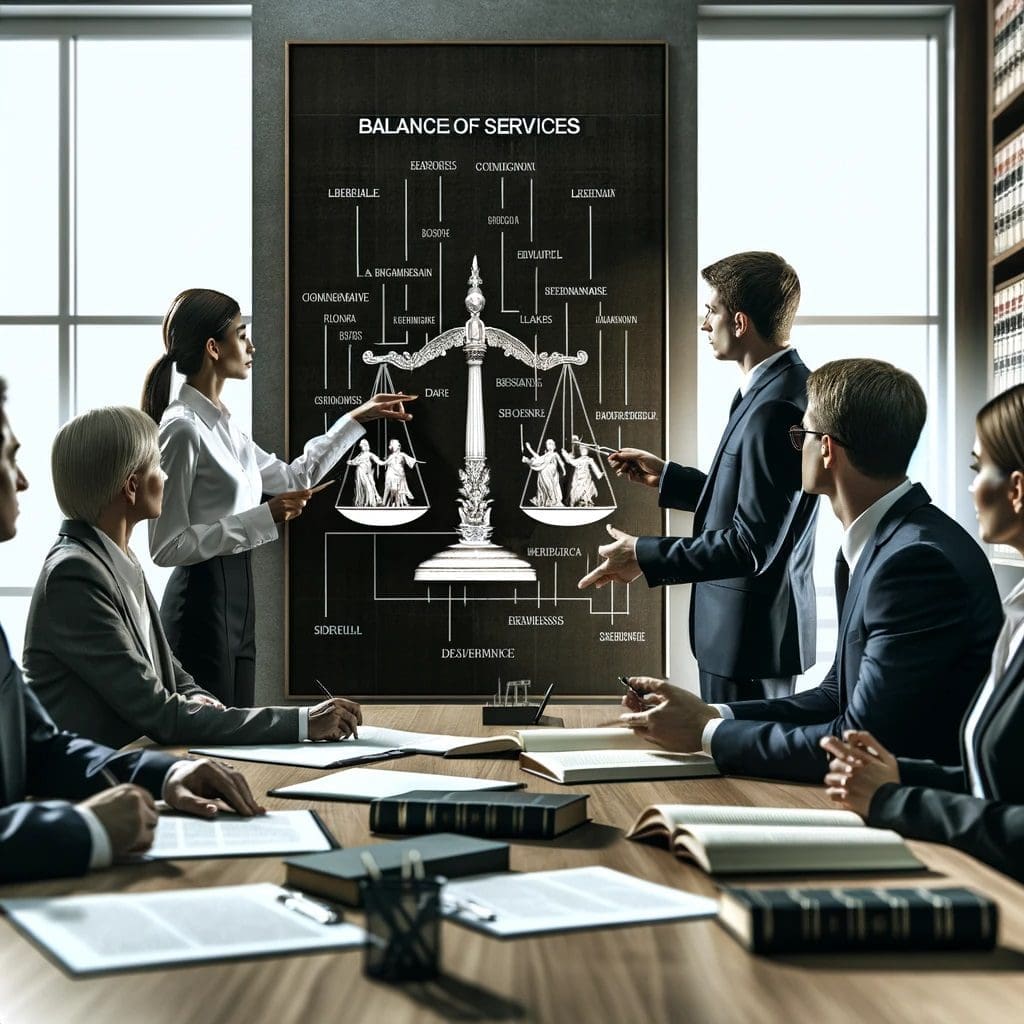Are Civil and Criminal Law Services Profitable Together?
In the complex world of legal practice, achieving a Balance of Services in civil and criminal law is crucial. This balance involves a broad spectrum of legal assistance, from providing legal advice and representation to managing intricate legal processes. The challenge lies in adapting these services to the specific demands of civil and criminal law cases.
Civil Law Services: A Spectrum of Dispute Resolution and Rights Protection
In civil law, legal services encompass a wide array of domains, including family law, property disputes, and contract law. Here, legal professionals serve as more than just legal advisors; they are mediators, negotiators, and, when necessary, litigators. They navigate the complexities of civil legislations, advocating for their clients’ rights and interests. The primary aim in civil cases is achieving resolution and justice, whether through mediation, arbitration, or court trials. The essence of civil law services is to attain fair resolutions, ensuring the rightful compensation or enforcement of legal rights.
Criminal Law Services: Defending Rights and Upholding Justice
In contrast, criminal law demands a different set of services. This field involves defending individuals accused of offenses against the state or society. Criminal defense lawyers work to ensure that their clients receive a fair trial and that evidence is scrutinized thoroughly. They challenge the prosecution’s evidence, cross-examine witnesses, and navigate complex legal procedures. The role of criminal lawyers extends beyond mere representation; it involves a strategic and rigorous defense aimed at protecting the accused’s rights.
Adapting Services to the Unique Demands of Each Case
In both civil and criminal law, legal professionals must tailor their services to the unique demands of each case. This often involves employing various experts – from forensic experts in criminal trials to financial analysts in civil cases – to strengthen their client’s position. The ability to adapt strategy and approach, depending on the unique aspects of each case, is crucial in maintaining a balance of services.
The Role of Technology in Modern Legal Services
The integration of technology into legal services has brought significant changes. Online legal consultations, digital case management systems, and virtual courtroom procedures are reshaping the way legal services are delivered, making them more accessible and efficient. This technological advancement has been instrumental in balancing the scales, especially in providing legal services to those who might otherwise lack access.
Accessibility and Affordability: Ensuring Justice for All
A critical aspect of balanced legal services is their accessibility and affordability. Legal aid, pro bono services, and flexible fee structures are essential in ensuring that justice is not reserved for those who can afford it but is a right accessible to all. This commitment to accessibility and affordability is foundational to a just legal system.
Conclusion: A Commitment to Fair and Effective Legal Services
In conclusion, maintaining a balance of services in civil and criminal law is essential for a just and effective legal system. It involves a commitment to providing comprehensive, adaptable, and accessible legal solutions. Whether addressing civil disputes or criminal charges, the goal is to navigate the legal system efficiently and ensure that justice is served.
For reference, the information in this article was synthesized and expanded from the following sources:
- Finding the Balance: Civil Law and Criminal Law – The Fernandez Firm
- When Criminal Law and Civil Law Collide – Conaway & Strickler
- The Intersection of Criminal and Civil Law in Personal Injury Cases
- Is it possible for a Lawyer to practice both Criminal and Civil law? – Reddit Legal Discussion
- Vertically Integrated Legal Service – Harvard Law School















